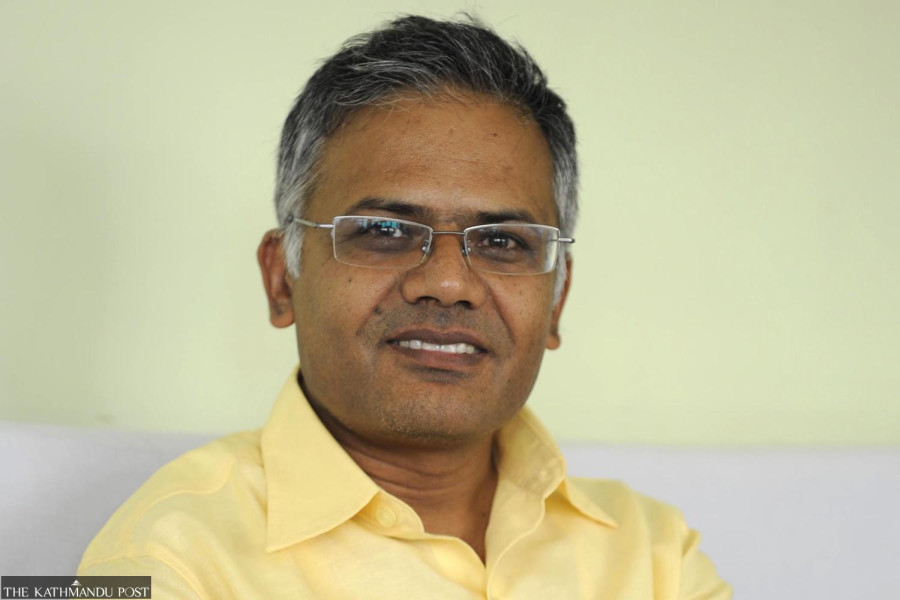Books
‘We should understand the history of a place to guide its future’
Mohan Mainali, a renowned journalist and award-winning writer, talks about his love for reading and his favourite books and authors.
Post Report
After completing his IA (Intermediate of Arts) examinations in Jhapa, Mohan Mainali returned to his hometown in Terhathum. In the village, with not much to do, he found himself reading curriculum books of his older siblings. During the months-long wait for his results, he immersed himself deeper into books and a reader was born.
Many know Mainali as a journalist but for the past decade, he has also been writing books. For his latest ‘Mantha Darayeko Jug’, he was awarded with the Padmashree Sahitya Puraskar.
In this interview with the Post, Mainali talks about his love for reading and writing, and his favourite books, authors and genres.
What books did you read starting out?
While going through curriculum books of my older siblings, I came across books such as Booker T Washington’s autobiography ‘Up From Slavery’, Shombhuj Bista’s ‘Raney’, and Lain Singh Bangdel’s translation of famous stories from around the world. These books had the best of literature and gave me an impetus to read more. My journey into reading began from there. Now reading has become an addiction of sorts.
Do you still get the time to read? And do you think reading has helped you become a better writer?
Journalism naturally requires a lot of reading. I read not only during my free time but also while working. I find many interesting things to write about while reading. For instance, I’m currently reading a book about Chandragiri and how the place inspired different leaders of yore. King Prithvi Narayan Shah decided to conquer Kathmandu Valley when he first reached Chandragiri. I am thinking of writing an article soon about it. So reading has definitely helped me with my profession.
You are a journalist, writer and an avid reader. What role do you prefer the most?
The idle version of me enjoys simply being a reader. You get to relish the book without any external intervention. But I also love the process of researching, writing and rewriting—be it for a newspaper column or a book.
Which genres do you especially enjoy reading?
I don’t think I will ever dare to write fiction and poetry but as a reader, I like reading both. It helps you expand your imagination. Yet, if I have to choose between fiction and non-fiction, I prefer the latter.
What are some of your favourite books?
I tend to have different favourites at different times. But some of the ones I remember are:
‘Maile Dekheko Nepal’ by Harka Gurung
‘Nepal ko Chinari’ by Toni Hagen
‘Nepal: Nakhuleka Pataharu’ by Tirtha Bahadur Shrestha
‘Gham Ka Paila Haru’ by Dhanush Chandra Gautam
Your favourite authors?
My favourite books are actually from my favourite authors. Harka Gurung’s books are about his journey on foot all over the country, and about the geography, society, and culture of the time. The books are evocative, full of rich descriptions of the place and society. They also teach one to be brave.
Tirtha Bahadur Shrestha has written extensively on climate and natural resources. I like his choice of subject and his prose style.
Dhanush Chandra Gautam explored Nepali society in his writing. I derived a taste for fiction from his realistic novels.
Any tips on reading for our readers?
There’s a lot of disturbance in our world today, lots of things that steal our attention. People today don’t have the same level of concentration as people from an earlier generation did. Oftentimes, you read a paragraph and you can’t remember when the story took a turn. Reading for the first time could be the same for many. Writing notes could be helpful. You don’t have to be a voracious reader the first time itself; the first time is supposed to be a warm-up exercise. It is important to choose a subject that broadens our knowledge of the society we live in. It is necessary for people to understand the history of the place to guide its future.




 14.24°C Kathmandu
14.24°C Kathmandu









